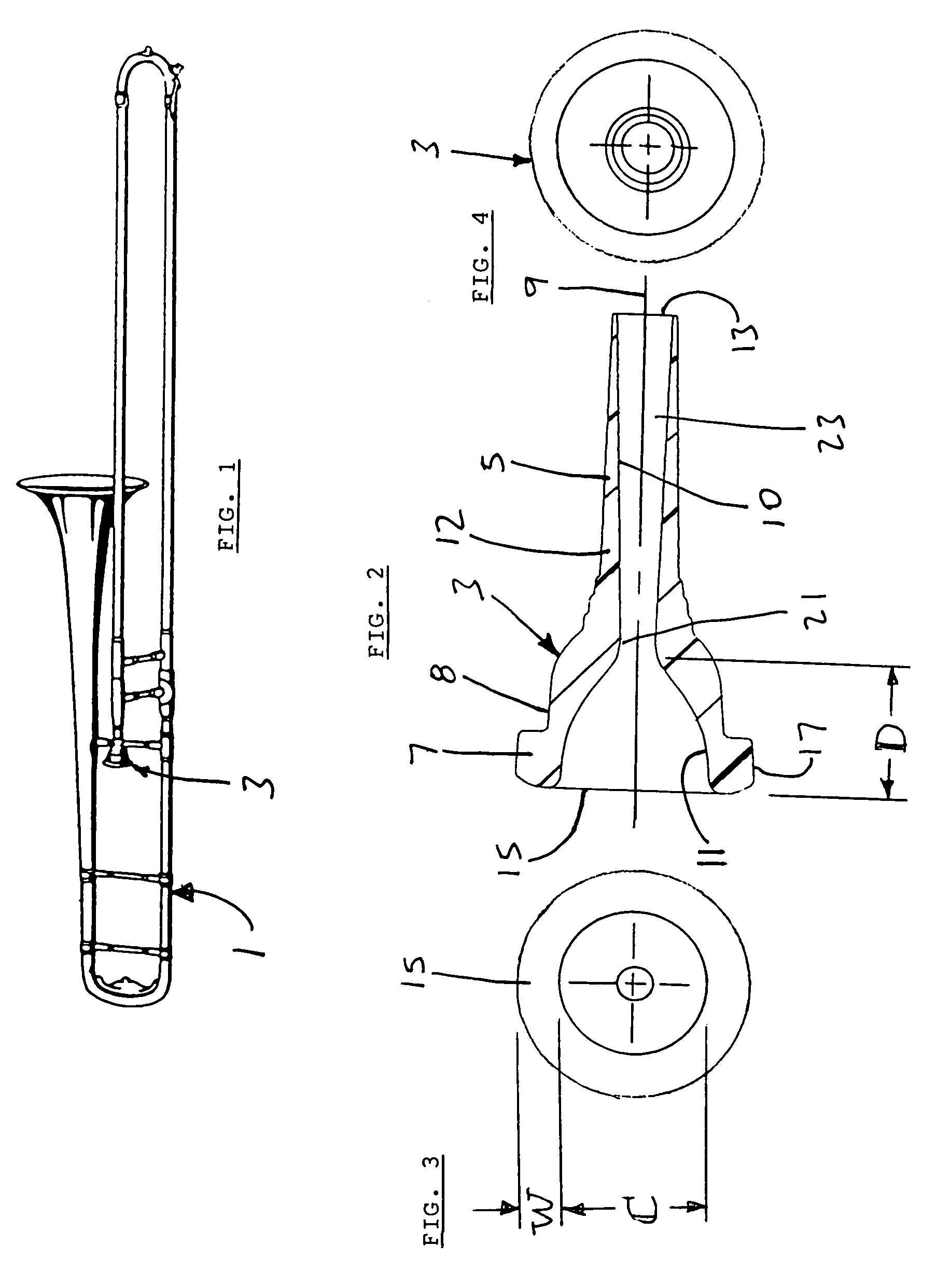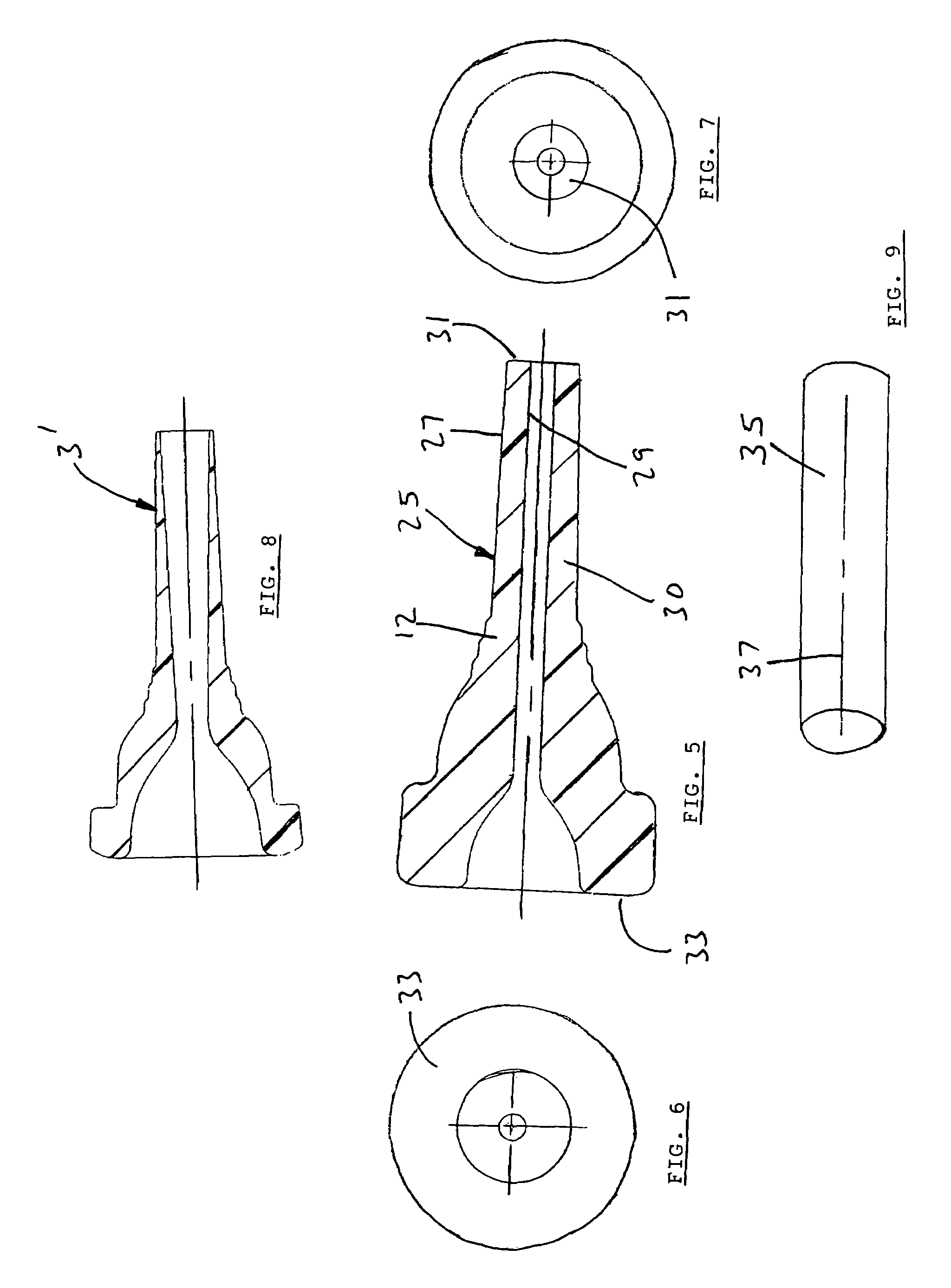Colored polymer musical instrument mouthpiece
- Summary
- Abstract
- Description
- Claims
- Application Information
AI Technical Summary
Benefits of technology
Problems solved by technology
Method used
Image
Examples
Embodiment Construction
[0032]Although the disclosure hereof is detailed and exact to enable those skilled in the art to practice the invention, the physical embodiments herein disclosed merely exemplify the invention, which may be embodied in other specific structure. The scope of the invention is defined in the claims appended hereto.
[0033]Referring to FIG. 1, a typical brass wind musical instrument 1 is illustrated that includes a colored polymer mouthpiece 3 according to the present invention. The particular brass wind musical instrument 1 is a slide trombone. However, it will be understood that the mouthpiece 3 is not limited to use with any particular kind of brass wind instrument. On the contrary, the mouthpiece may be used with a wide variety of brass instruments ranging in size from small cornets to large euphoniums and tubas. The exact size and shape of the mouthpiece will vary according to the particular instrument with which it will be used.
[0034]In accordance with the present invention, the mo...
PUM
 Login to View More
Login to View More Abstract
Description
Claims
Application Information
 Login to View More
Login to View More - R&D
- Intellectual Property
- Life Sciences
- Materials
- Tech Scout
- Unparalleled Data Quality
- Higher Quality Content
- 60% Fewer Hallucinations
Browse by: Latest US Patents, China's latest patents, Technical Efficacy Thesaurus, Application Domain, Technology Topic, Popular Technical Reports.
© 2025 PatSnap. All rights reserved.Legal|Privacy policy|Modern Slavery Act Transparency Statement|Sitemap|About US| Contact US: help@patsnap.com



